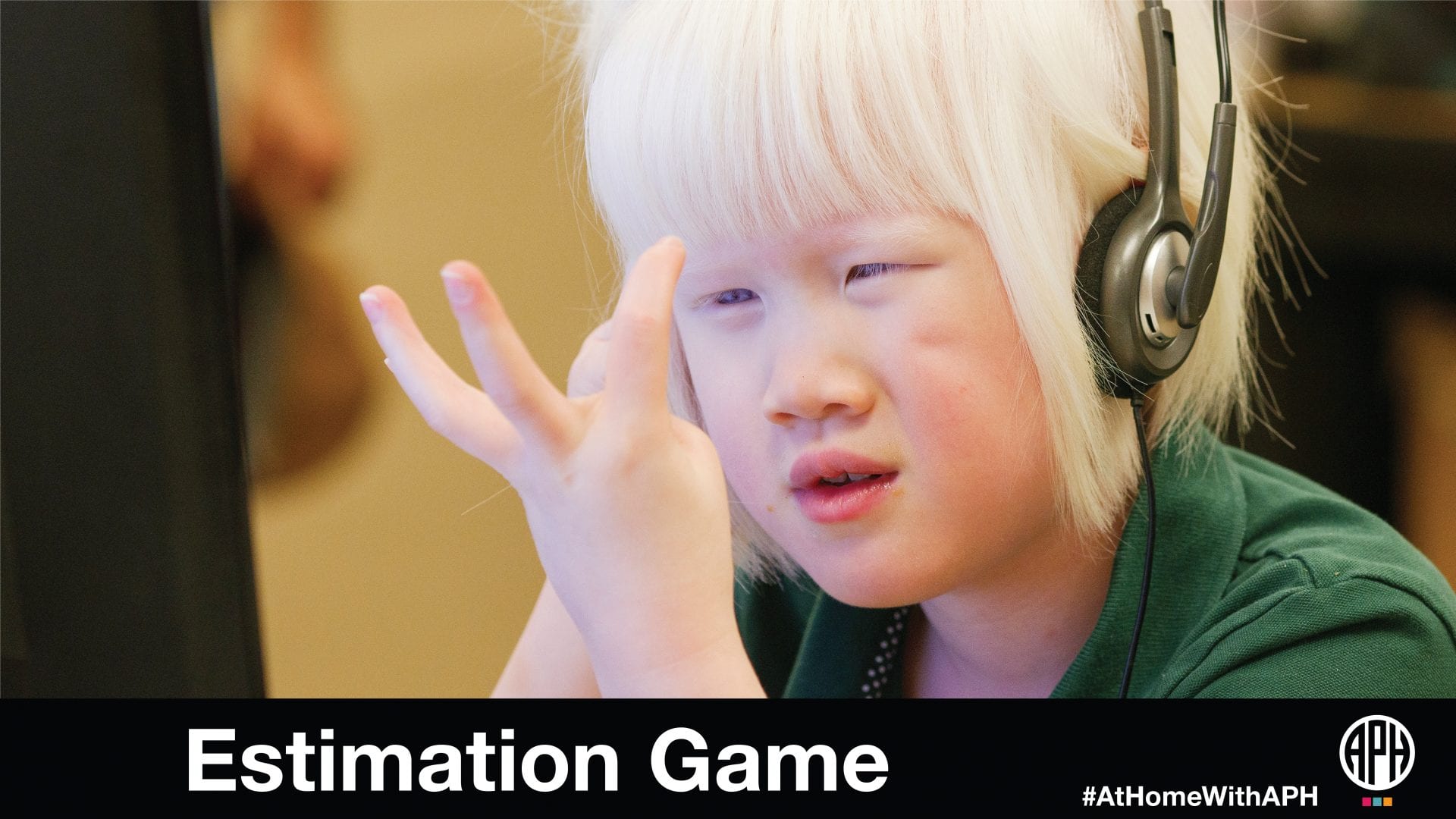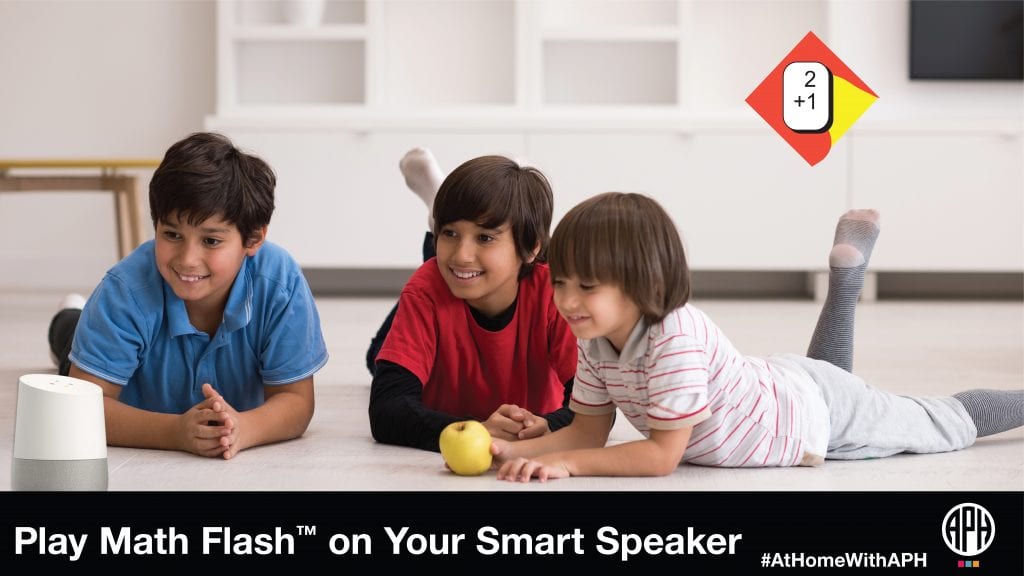Orders placed between March 27 – 31 will not ship until April 1 due to APH warehouse closure for inventory.
ClosePlay an Estimation Game

Looking for an easy way to practice math skills with your child? How about playing a fun estimation game?! Here is a simple way to make a little competition out of solving basic arithmetic drills. You can customize the way you play this estimation game based on your child’s age/level of study by choosing to play with any combination of addition, subtraction, multiplication, or division problems.
Materials needed:
- Something for keeping score (paper, phone, refreshable braille display)
- A calculator
Here are the steps:
- Player A comes up with a math problem, such as 27 + 186.
- Player B has 3 seconds to estimate the answer (no calculator!) Let’s say they estimate its 205.
- Player A uses the calculator to find the correct answer and if player B was incorrect, how much their estimate was off from the correct answer. In this scenario the correct answer is 27 + 186 = 213. Then, the difference is 213 – 205 = 8.
- Player A gets 8 points. You or your child should write it down on the scorecard. The closer player B’s estimate is to the correct answer, the fewer points player A gets. If player B gives the exact correct answer, player A will get no points.
- Now it’s Player B’s turn to come up with a math problem and player A’s turn to make an estimate. Repeat steps 1 – 4 until player B gets his or her points. Make sure to record the points on the scorecard.
- Repeat steps 1 – 5 for nine more rounds. Each time a player gets points, add them to his or her previous scores to find the total.
- After playing the game for 10 rounds, compare the total scores. The player with the higher score wins the game!
Notes:
Rules can be set up before the game such as using no number greater than four digits, only multiplication problems, or only negative numbers. This should be according to your child’s level of math study. You can also adjust the estimation time given to solve the problem to best suit your child’s age/level of education.
If your child often comes up with correct answers to your problems, you should use more difficult problems to challenge him or her. The purpose of this game is for your student to practice their ability to make reasonable estimates rather than precise calculations.
If your child is learning how to use an abacus, try replacing the calculator with an abacus when calculating the differences. For example, you can use the calculator and your child can use the abacus.
Candy and snacks make great prizes for the winner! Happy playing!
For more resources please check out our #AtHomeWithAPH resource list for free and accessible activities, tips, webinars, and more from APH, our partners, and the field at large. Have a free and accessible resource you would like us to include? Email us at communications@aph.org to tell us about it!
Share this article.
Related articles

Math Flash on Amazon Alexa!
We’ve taken our popular electronic flashcard software Math Flash and combined it with fun audio feedback and a snarky personality...
